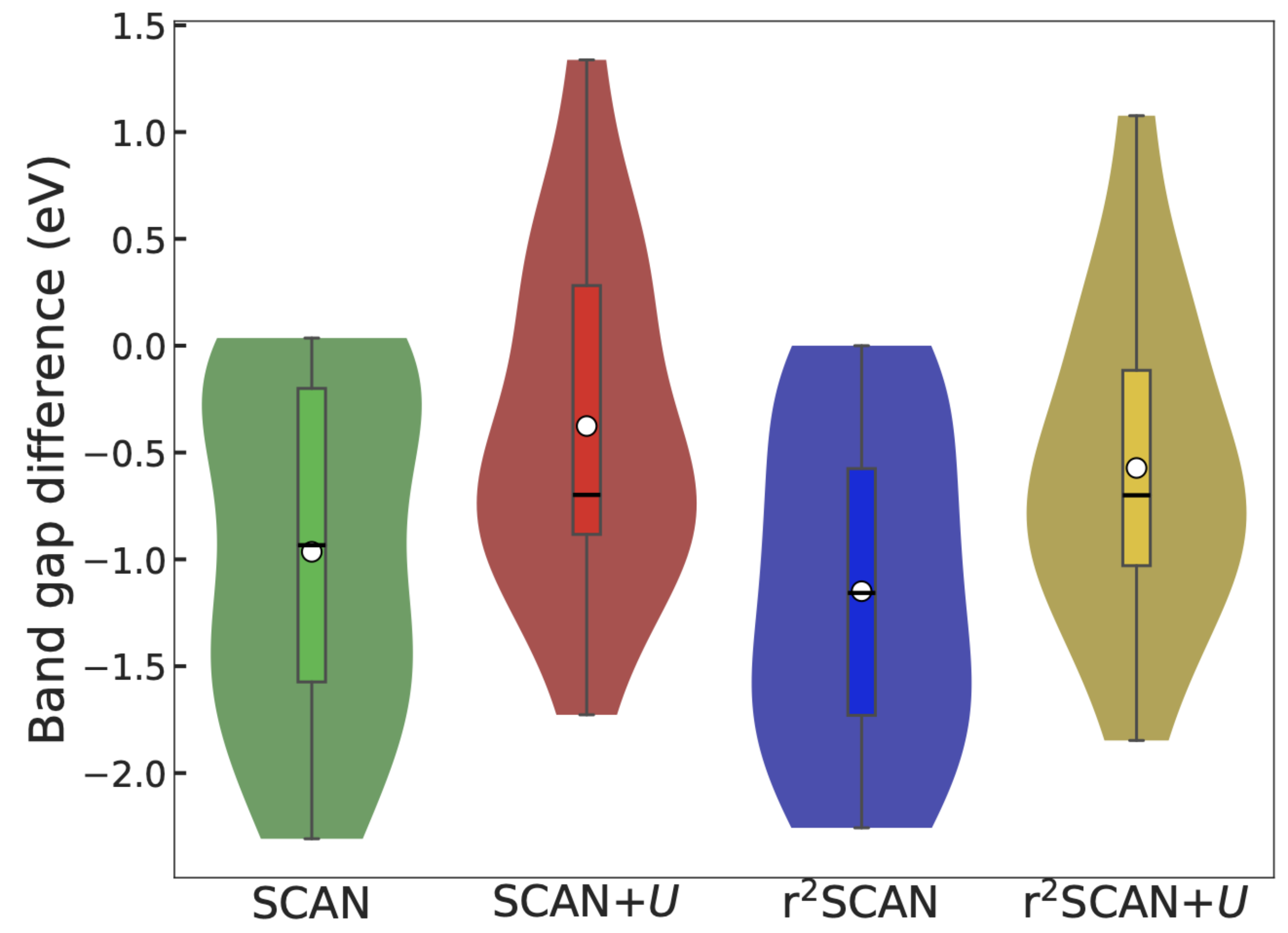Abstract
We assess the accuracy and computational efficiency of the recently developed meta-generalized gradient approximation (metaGGA) functional, the restored regularized strongly constrained and appropriately normed (r2SCAN), in transition metal oxide (TMO) systems and compare its performance against SCAN. Specifically, we benchmark the r2SCAN-calculated oxidation enthalpies, lattice parameters, on-site magnetic moments, and band gaps of binary 3d TMOs against the SCAN-calculated and experimental values. Additionally, we evaluate the optimal Hubbard U correction required for each transition metal (TM) to improve the accuracy of the r2SCAN functional, based on experimental oxidation enthalpies, and verify the transferability of the U values by comparing against experimental properties on other TM-containing oxides. Notably, including the U-correction to r2SCAN increases the lattice parameters, on-site magnetic moments and band gaps of TMOs, apart from an improved description of the ground state electronic state in narrow band gap TMOs. The r2SCAN and r2SCAN+U calculated oxidation enthalpies follow the qualitative trends of SCAN and SCAN+U, with r2SCAN and r2SCAN+U predicting marginally larger lattice parameters, smaller magnetic moments, and lower band gaps compared to SCAN and SCAN+U, respectively. We observe that the overall computational time (i.e., for all ionic+electronic steps) required for r2SCAN(+U) to be lower than SCAN(+U). Thus, the r2SCAN(+U) framework can offer a reasonably accurate description of the ground state properties of TMOs with better computational efficiency than SCAN(+U).
